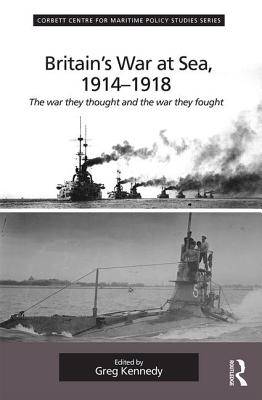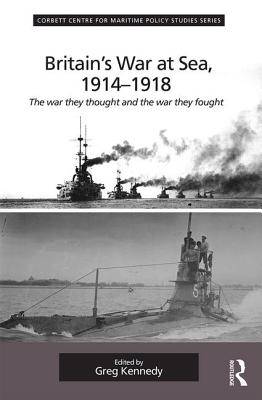
- Afhalen na 1 uur in een winkel met voorraad
- Gratis thuislevering in België vanaf € 30
- Ruim aanbod met 7 miljoen producten
- Afhalen na 1 uur in een winkel met voorraad
- Gratis thuislevering in België vanaf € 30
- Ruim aanbod met 7 miljoen producten
Zoeken
Britain's War at Sea, 1914-1918
The War They Thought and the War They Fought
€ 202,95
+ 405 punten
Omschrijving
In Britain, memory of the First World War remains dominated by the trench warfare of the Western Front. Yet, in 1914 when the country declared war, the overwhelming expectation was that Britain's efforts would be primarily focussed on the sea. As such, this volume is a welcome corrective to what is arguably an historical neglect of the naval aspect of the Great War. As well as reassessing Britain's war at sea between 1914 and 1918, underlining the oft neglected contribution of the blockade of the Central Powers to the ending of the war, the book also offers a case study in ideas about military planning for 'the next war'. Questions about how next wars are thought about, planned for and conceptualised, and then how reality actually influences that thinking, have long been - and remain - key concerns for governments and military strategists. The essays in this volume show what 'realities' there are to think about and how significant or not the change from pre-war to war was. This is important not only for historians trying to understand events in the past, but also has lessons for contemporary strategic thinkers who are responsible for planning and preparing for possible future conflict. Britain's pre-war naval planning provides a perfect example of just how complex and uncertain that process is. Building upon and advancing recent scholarship concerning the role of the navy in the First World War, this collection brings to full light the dominance of the maritime environment, for Britain, in that war and the lessons that has for historians and military planners.
Specificaties
Betrokkenen
- Uitgeverij:
Inhoud
- Aantal bladzijden:
- 238
- Taal:
- Engels
- Reeks:
Eigenschappen
- Productcode (EAN):
- 9781472426277
- Verschijningsdatum:
- 3/05/2016
- Uitvoering:
- Hardcover
- Formaat:
- Genaaid
- Afmetingen:
- 157 mm x 234 mm
- Gewicht:
- 498 g

Alleen bij Standaard Boekhandel
+ 405 punten op je klantenkaart van Standaard Boekhandel
Beoordelingen
We publiceren alleen reviews die voldoen aan de voorwaarden voor reviews. Bekijk onze voorwaarden voor reviews.










